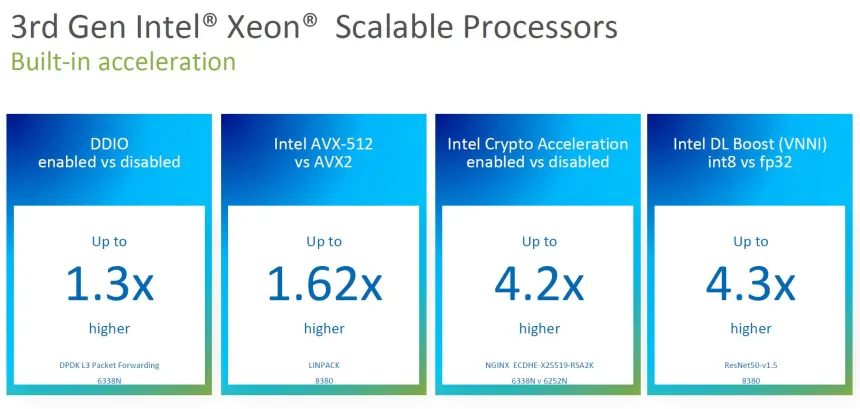As part of being an Alibaba Cloud MVP, I get to test from time to time new products from this cloud provider for free, which is a really nice thing to have. This greatly helps me with my business, Guztia Consulting, as we specialise in Accelerating Sites in China. In this occasion, thanks to some vouchers I got from the team in Hangzhou, I had the chance to play, for free, with the newest 7th Generation of their ECS Instances.

What Is New On This Generation?
After some time from the official release, the new 7th Gen ECS Instances are generally available in China Mainland. This is a huge milestone for Alibaba Cloud, as this family is using the impressive 3nd Generation Intel Xeon Scalable Processors (Ice Lake) and means already more than 12 years of innovation on this matter.

This, alone, is supposed to help with general CPU performance and lower latencies. It supports a baseline bandwidth of 64 Gbit/s and currently is available in China Mainland, with Singapore and Hong Kong to follow soon, which will make the first regions outside China Mainland supporting this generation. Of course, the new 7th generation is built on X-Dragon like the previous 6th Gen.
Let’s see again what is this X-Dragon thing
The idea is quite simple (not so much to execute tho). The 6th and this 7th Gen ECS instances uses Alibaba’s proprietary X-Dragon platform. The X-Dragon platform consists of the MoC NIC, X-Dragon software, and X-Dragon Hypervisor.

Through this architecture, the management software, network virtualisation and storage virtualisation that usually run on physical servers in traditional virtualisation solutions are offloaded onto the MoC NIC. Guess what? In this way, the servers are fully available to users. Smart.

I was quite lucky to assist in 2019 to the official presentation of the X-Dragon platform during the Apsara Conference in Hangzhou and I was happy to see it as a reality last year with the 6th Gen.
Very well, let’s test it!
For this article I made a couple of tests to see, with real numbers on the table, the actual differences of both old and new generation. Let’s do it:
PHP Benchmark
This free PHP performance benchmark script is a free PHP script to calculate benchmark speeds (PHP execution times) of PHP web hosting servers. The free PHP script performs some simple mathematics and string manipulating functions repetitively, and records the PHP code execution time it takes to complete the PHP functions.
ecs.g6.large
--------------------------------------
| PHP BENCHMARK SCRIPT |
--------------------------------------
Start : 2021-08-10 20:10:53
Server : [email protected]
Platform : Linux
--------------------------------------
test_math : 0.208 sec.
test_stringmanipulation : 0.282 sec.
test_loops : 0.191 sec.
test_ifelse : 0.158 sec.
--------------------------------------
Total time: : 0.839 sec.
ecs.g7.large
--------------------------------------
| PHP BENCHMARK SCRIPT |
--------------------------------------
Start : 2021-08-10 20:10:52
Server : [email protected]
Platform : Linux
--------------------------------------
test_math : 0.159 sec.
test_stringmanipulation : 0.227 sec.
test_loops : 0.136 sec.
test_ifelse : 0.114 sec.
--------------------------------------
Total time: : 0.636 sec.
That’s a 31.92% increase in performance!
Difference in pricing
In this case the hourly price of an instance changes a little bit, costing more compared with the older generation. To put things in perspective, the hourly price of the old “ecs.g6.large” instance was USD$0.084. Now compare that with the hourly price of a new “ecs.g7.large” being USD$0.095. This is $0.011 more expensive per hour or around $8 more per month under this configuration.
This means a price increase of around 13.1% with a performance increase of up to 31.92%. This is actually good news, as you get more for every dollar!
Conclusion
Well, as we are seeing today, the new generation is a real step-up in compute capacity, and it virtually costs the same. If you are running an ECS Instance with a gen6, it is definitely time to make the jump and update. At the very least, this upgrade will get you more bang for your buck!